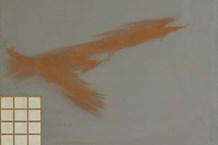The International Association of Dealers in Ancient Art (IADAA) made the assertion in reaction to the findings of a Europe-wide police investigation, called Operation Pandora, designed to clamp down on illicit trade in cultural property within Europe.
Pandora failed to yield “any artefacts of great importance and value, nor any evidence of illegally exported artefacts from the Middle East, especially from Iraq or Syria,” said Vincent Geerling, chairman of IADAA.

Vincent Geerling, chairman of IAADA.
He added that Pandora “was successful, contrary to that what was expected, because it proved that the trafficking of cultural property from the conflict zones in Europe appears to be minimal”.
Coordinated by Europol, Operation Pandora took place across 18 European countries in late 2016. The media campaign that followed in its wake highlighted the seizure of 3561 ‘works of art and cultural goods’ and the arrests of 75 people.
However, IADAA says not a single item has since been shown to have come from a current war zone.
Further analysis of the finds suggested few were of significance: the 500 archaeological objects found in Murcia were mostly Spanish medieval coins, while the 1000-plus objects seized following the arrest of a metal detector in Poland were mostly Second World War bullet cases and rifle parts.
“A lot of stress on the art market’s responsibilities, but no attempt to engage us
Vincent Geerling, chairman, IAADA
In response to the IADAA’s view, Europol conceded this month that “at this stage, there is no indication that among the seized artefacts there are objects originating from Iraq or Syria”, but added that investigations were ongoing.
IADAA says the result is in line with the association’s own observations across the antiquities market. “In the past four years, not a single object coming from the conflict areas has been offered to any of our members. Despite this, the EU is even now conducting an extensive consultation exercise into further restricting the movement of cultural objects.”
Geerling was among members of the trade who attended the UNESCO 1970 Conference in Paris on May 15-16 to address the delegates on behalf of CINOA.
He was troubled that the audience “appeared to accept without question that Syria and Iraq-related looting was a growing problem”.
“There was a great deal of stress on the art market’s ethical responsibility to protect heritage, but no attempt made to engage the art market – even [those of us who] were actually at the conference.”
Need for amnesty
In this issue of ATG, Joanna van der Lande, chairman of the Antiquities Dealers’ Association, suggests the introduction of an amnesty, to “draw a line under everything not proven to have been stolen, record it and allow it to circulate”.
The year 2000 is suggested as a workable date.
See interview with Joanna van der Lande in this week's issue.














